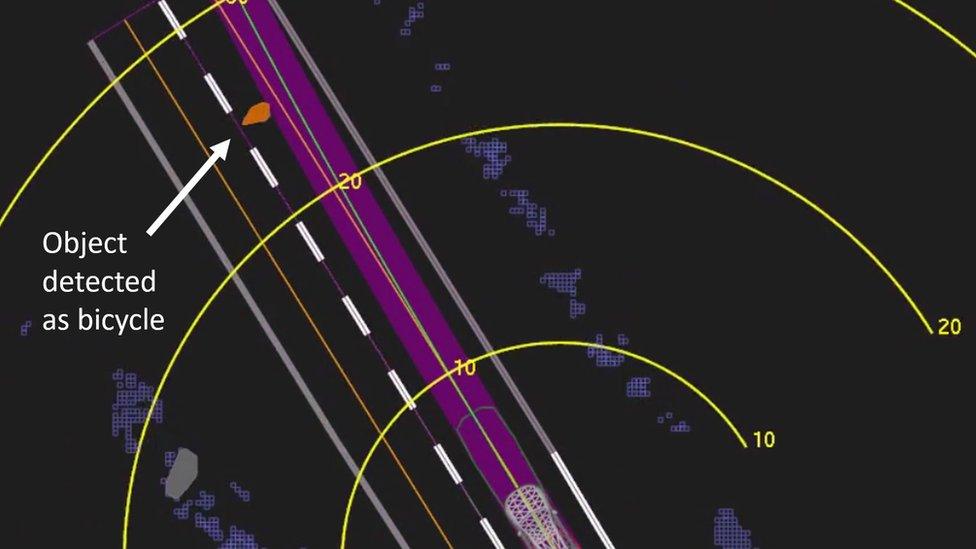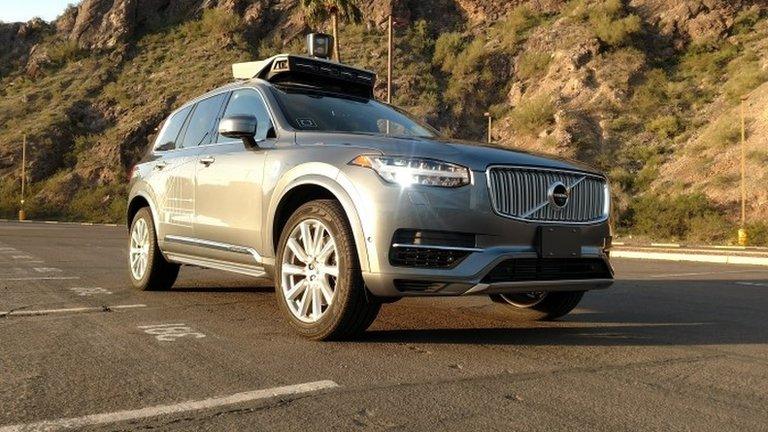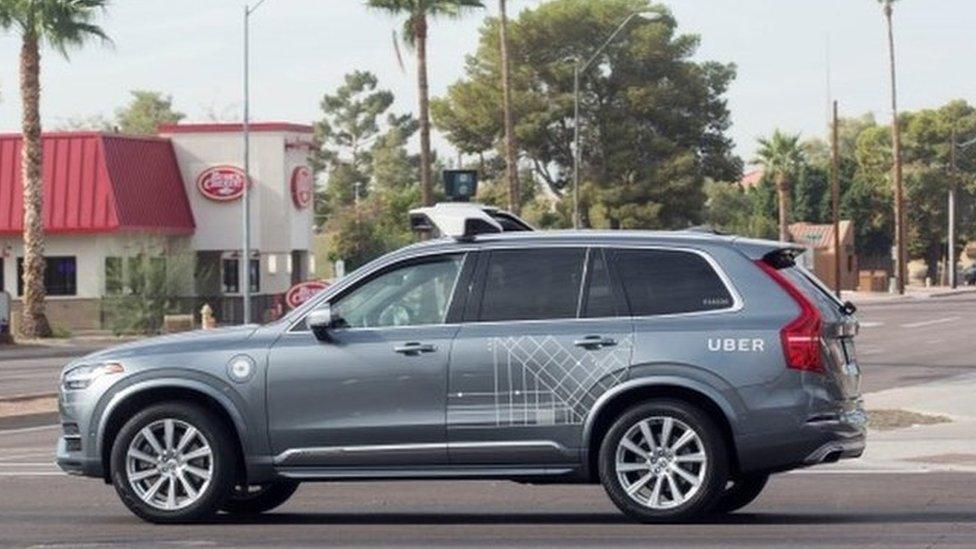Uber self-driving crash 'mostly caused by human error'
- Published
Uber dashcam footage shows moment before fatal impact
A distracted safety operator in an Uber self-driving car was primarily to blame for a fatal crash in 2018, a US regulator has ruled.
The National Transportation Safety Board (NTSB) said an “inadequate safety culture” at Uber was also a major contributing factor.
As too were poor, or in some cases non-existent, rules governing firms testing self-driving technology.
The findings follow a near two-year investigation.
In a hearing to discuss the results, the NTSB urged national regulators to create a more thorough review process before the technology can be used on public roads.
Elaine Herzberg, 49, was killed when an Uber-owned self-driving car - operating in autonomous mode - struck her as she crossed a road in Tempe, Arizona, on 18 March 2018.
In the car was safety driver Rafaela Vasquez who, according to investigators, had been streaming a TV show on her mobile phone while behind the wheel.
Dashcam footage showed Ms Vasquez spent 36% of the journey that evening looking at the device.
In its experiments with driverless cars, Uber has mandated that a human operator pays attention at all times so they can take over in difficult situations or when the vehicle encounters a situation it does not know how to handle.
"Had the vehicle operator been attentive, she would likely have had sufficient time to detect and react to the crossing pedestrian to avoid the crash or mitigate the impact," the NTSB ruled.
Uber’s computers detected Ms Herzberg 5.6 seconds before impact, the NTSB said, but did not correctly identify her as a person.

The NTSB mapped the incident - yellow rings show metres ahead of the vehicle, orange lines centre of mapped travel and purple area the car's path
The report said Ms Herzberg was acting unsafely in attempting to cross the road where she did - investigators said toxicology reports suggested she had taken drugs that may have impaired her judgement.
Nevertheless, the NTSB said Uber had an "inadequate safety culture, exhibited by a lack of risk assessment mechanisms, of oversight of vehicle operators, and of personnel with backgrounds in safety management”.
It acknowledged on Tuesday that the company had made significant changes since the accident.
Uber said it welcomed the recommendations.
"We deeply regret the March 2018 crash that resulted in the loss of Elaine Herzberg’s life, and we remain committed to improving the safety of our self-driving program,” said Nat Beuse, head of safety at Uber’s advanced technologies group.
“Over the last 20 months, we have provided the NTSB with complete access to information about our technology and the developments we have made since the crash. While we are proud of our progress, we will never lose sight of what brought us here or our responsibility to continue raising the bar on safety.”
_____
Follow Dave Lee on Twitter @DaveLeeBBC, external
Do you have more information about this or any other technology story? You can reach Dave directly and securely through encrypted messaging app Signal on: +1 (628) 400-7370
- Published22 June 2018

- Published6 November 2019

